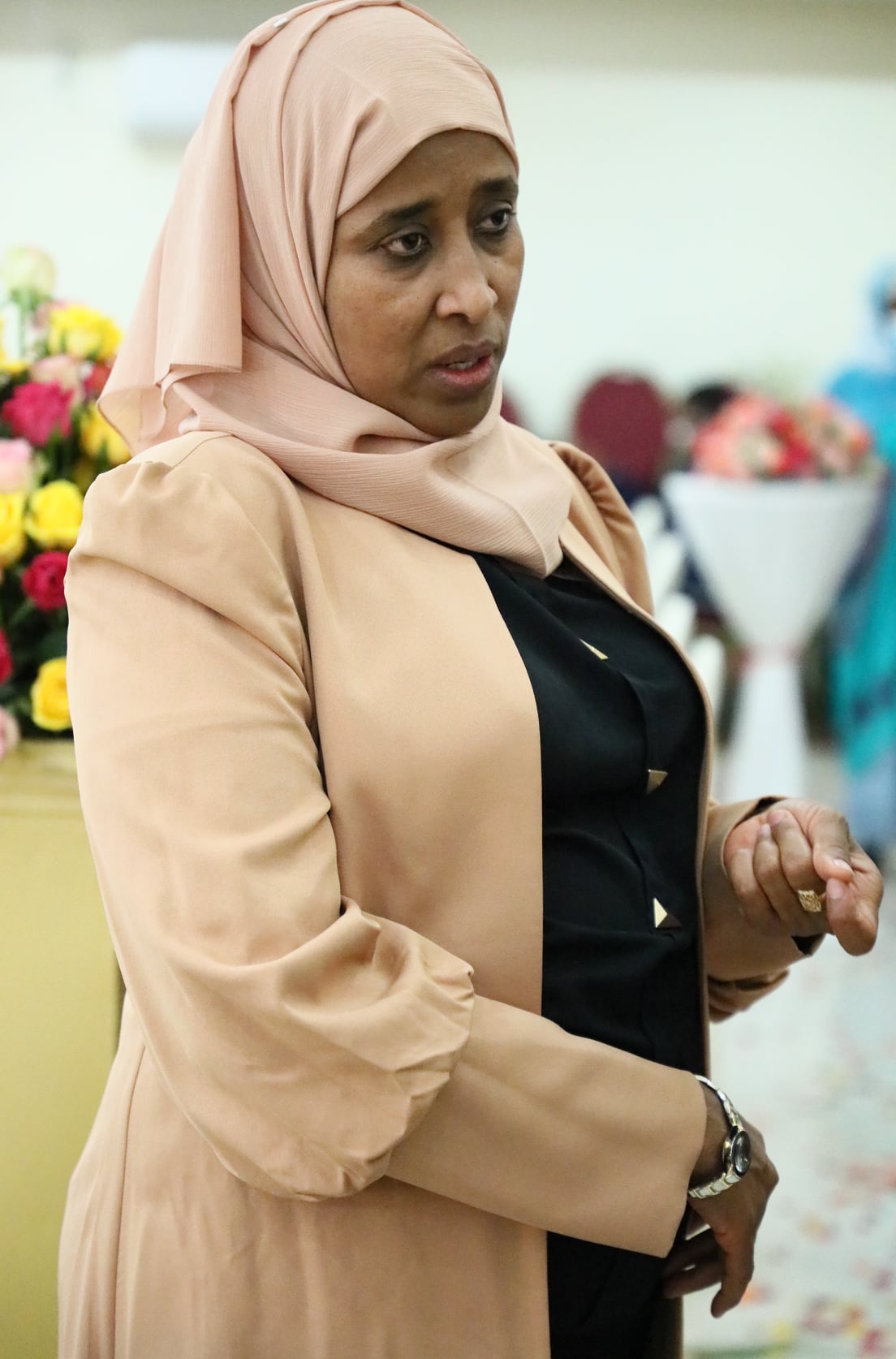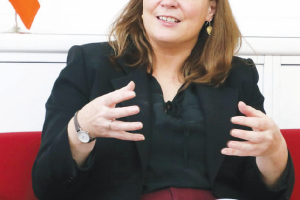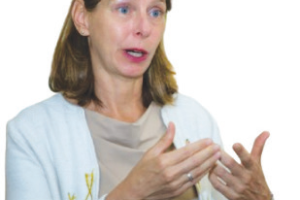
BY STAFF REPORTER
Unlike the previous years, Ministry of Women, Children and Youth has done a month long celebration of International Women’s Day/March 8. The main reason for the celebration of the event for a month is to raise the attention given to gender issues in the country, says State Minister of Women, Children and Youth, Muna Ahmed.
During her interview with the Ethiopian Press Agency in connection with the day, Muna has elaborated on the main challenged hindering women’s economic, social and political benefits, progresses made in empowering women in the three sectors as well as the range of interventions her ministry is undertaking to address the problems of women in the country. Excerpts:
How is the day celebrated at national level here in Ethiopia?
Unlike the previous years we were making several preparations to observe the event the whole month both at federal and regional levels. This means due attention would be given to issues of women the whole month. The motto is “Build a gender sensitive society” so we have to work on changing the skewed attitude of the society towards women.
We have to enable the society at different levels to have similar say about women. I would like to stress that the day should not be celebrated only one day per year. So far we have been doing so. But when we stop and think about it now, for a woman only one day per year is not enough to deal with its rights. We have concluded that we should discuss and make sure that we have respected women’s rights the whole year.
We should also notice that what we do during the month is to give due attention to the rights of women, otherwise we understand that women’s rights is an agenda of the whole year.
As an institution, individuals or at family levels we should also ask ourselves how we are dealing with the rights of women. There is a need to find out how much our policies, strategies, legal frameworks are executed and are ensuring the rights of women. We should work until gender issues are fully addressed.
We have devised four main programs to celebrate the event throughout the month. The day was observed in four main themes each taking place on weekly basis. In the first week we have discussed the challenges women leaders face, in the second week issue of women and education, in the third week women and economy as well as in the fourth week gender based violence.
We have evidence from field visit that women are more vulnerable during COVID-19 outbreak and conflicts. We have a plan to prevent women from such risks. There is a task force in charge of preempting gender based violence. Ministry of Women, Children and Youth, Attorney General, and Ministry of Health would collaborate on the issue.
In accordance with this as an institution we are establishing a national gender based violence crimes information system to curb the problem. We have finalized the document work and are left with signing agreement with relevant institutions and enter in to force. The work is large scale and pioneer at national level.
The main challenge in fighting gender based violence is lack of evidence. It intends to document information about perpetrators of the crime and halt them from repeating the offense. This will also help to teach the community about preventing the crime.
What are the main factors behind these challenges and what kinds of actions are you taking to address them?
The factors include traditionally handed down wrong attitude of the society towards women, men supremacy, lack of confidence or low self-esteem among women and faults in the enforcement of law. The other problem is the women policy adopted in 1993.
This means the constitution and the women policy contravene each other. The policy lacks many things. Activities are underway to address the loopholes. It is under revision. There is a need to put clear direction, examine gaps and the way the laws are being enforced.
The world is dominated by men. In relation to this there are many women who share the ideas of men. It is important to work on this properly. When we talk about equal opportunity and benefit it is a matter of rights. The question how our rights are considered needs some effort. Hence there is a need to do some work at every level on attitude. All media should also engage.
The issue of women coming to leadership positions is a matter of rights. I do not believe that men should be givers and women receivers. This is our right. If we pave the way for them, support and empower them I am sure that we can see women who can lead the nation. There are some activities underway in this regard.
It is important to note that their rate of participation declines as you go down the administrative echelon. Women holding executive positions at woreda level are only 25.9 percent. It is important to carryout concerted effort to retain the 50 percent participation rate of women at federal level. Since we cannot reap what we have not sawn, we have to work hard to empower women and create opportunities.
Women are able if we give them chances. By now we are witnessing strong women who can lead a nation tomorrow. We have plans to carry out fruitful works that can bring about change. Especially school girls need role models. There is a program related to this issue which can be further extended in the future.
What are women requesting? How are they treated and solved?
The main question of women is of rights, participation and benefit. We should not separate the questions. As we address the issue of rights we should not ignore the other issues. If we ensure the equality rights of women, they will get a change to benefit from source of wealth.
When we empower them economically their social problems would be solved. Therefore we should not make separations when we address the problems of women. We should rather integrate them.
For this end the leadership at different levels, along with the activities of the women at different hierarchies, should do meaningful works for women.
Despite some commendable works no one claims that women are beneficiaries politically, economically and socially. Therefore by filling the gaps and reinforcing the ongoing activities we can create favorable conditions for the coming generation. This needs the collaboration of all at different hierarchies.
How do you explain the role of men partnership?
Gender based violence has not ceased yet. So there is a need for an increased role of men than ever before. Participation of men is vital to eliminate the problem from its source. They have to understand that our relationsship is not a matter of give and take rather, it is a matter of enjoying equal opportunities. They have to understand thatas much as we share the country we also have to get equal opportunity in nation building.
Women are not weak or inferior. We suffer from problems and shoulder double burden that we carried from below. Men and women are not equal at home. We also engage in office work. We are also responsible for the household chores.
Rural women spend most of their time in household chores. Some studies show a shocking result about the working hours of Ethiopian women. Therefore men should support women by allowing the use of technologies that reduce women’s work load.
Women occupy senior government positions after passing through such difficult responsibilities. We practice leadership while leading the household. Personally I believe that a government is smart when it brings women to leadership position. This is because women are more honest and are reliable in handling assignments. This shows how responsible a woman is.
What is the importance of mentioning the economic, social and political participation of women?
If we look at the gender balance, more than 50 percent of the population is women. If we do not address the economic and social needs of these portions of the population our goals of prosperity at national level would not materialize. If it does not appeal to half of the population it cannot be considered complete.
How are women participating in the nationwide political activities by now? Is there any difference after the reform? What international experiences have you bench marked?
There are inspiring performances in the political participation after the reform. There are also improvements. For instance if we look at leadership and decision making at federal level they have reached 50 percent while at regional level they account for 19 percent. At the House of People’s Representatives their participation is 38.7 per cent and at region, it is 40.5 percent.
At the judicial organ, the role of women goes on decreasing. Many women tend not to join the judicial body. The participation of women at federal Supreme Court is 27 percent and at federal high court 18 percent. While their proportion at federal first instance court is 60 per cent, the trend decreases when they go up the hierarchy.
The overall participation of women at the legislative, executive and judicial body is 30 per cent. This is a clear indication that women are not adequately participants and beneficiaries in the political, economic and social sectors.
Our benchmark in this regard is Spain. Women account for 64 per cent of the parliament seats. There is no reason this cannot be a reality in our country. There are good starts here. Failure to properly involve women is a problem not only in our country but also other countries. The experiences of other countries show that women are not participating to the desired level.
What is their participation in the social and economic sectors?
Majority of the 50 percent dwell in rural areas. The role of women in agriculture which is the mainstay of the country’s economy is only 45 percent. According to the six months report of the federal job creation commission, women were able to benefit from only 35 percent of the jobs created in the six months. This shows women still lag behind in earning benefits. Hence it is a must to involve women in a quota. There is a need to benefit 50 percent of the population in order to bring about change at national level.
Data in agriculture also show that women have not benefited as much as men do. The portion of women on agricultural extension is 11 percent while those who have accessed loan are only 9 percent. Only 27.4 percent of women benefitted from agricultural technology.
In this regard it is necessary to put in place a calculated solution. There are limitations in land ownership and succession. Majority of the sector where women are engaged are informal ones. The economic reasons for this must be studied.
According to a study by National Plan Commission, the country loses about 3.7 billion birr due to the gender imbalance in the economy. This is a witness that women still have not benefitted adequately from the economy. Through our 10 years plan women have received support to join cooperatives through self-help savings.
A new platform entitled let 50 million women speak will be launched recently. The plat form is set to be launched on international women’s day to enable women to access information along with fellow African women. Empowering women economically requires a lot of work. It is important to find out the limitations the encounter in areas where they are engaged in.
After thoroughly evaluating the shortcomings hindering them from accessing loan and extension it is advisable to work on technologies that can reduce women’s labor. The future plan is to further enhance the labor effective interventions. This is to be accomplished in collaboration with other offices.
When we look at women’s education the school participation at elementary education level is 95.4 percent which is encouraging. But the rate declines as it goes up wards as their participation at secondary school is 28 percent. The same is true of their participation in higher education.
To address this we intend to work on teenage girls. We believe that they will succeed if we address their biological problems that hamper their school attendance. Since educating women means educating the nation, we cannot talk about education without empowering women. We have carried out several works to find out the reasons for the declining trend of their education participation in upper grades.
In the implementation of affirmative action which is a constitutionally enshrined right, there are flaws in availing employment opportunities for women. So we are conducting study to find out why the terms indicated in the constitution are infringed during implementation.
There are some improvements in reducing the death of mother and children. Yet it is till necessary to further extend mother and child health service as there are many who give birth at home.
Since we are losing about 5000 women annually due to cervical cancer we are working on bringing about attitudinal change among the community and uphold medical support for the victims.
What are you doing in connection with the upcoming 6th general elections and women mobilization?
The 6th general election is historical. It is historical because many competing political parties participate in it. I believe that it is much better than preceding ones.
Since it is a matter of rights we have conducted activities to encourage women to participate along with all parties. As to the information I have so far about 45 percent of the voters are women. We have a big role both as candidates and voters. 45 percent is not a simple figure. We have to exercise our share.
Thank you very much!
You are welcome!
The Ethiopian Herald March 9/2021




